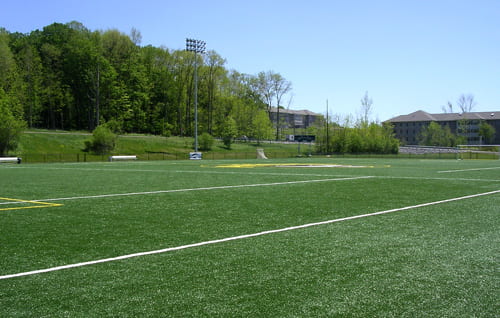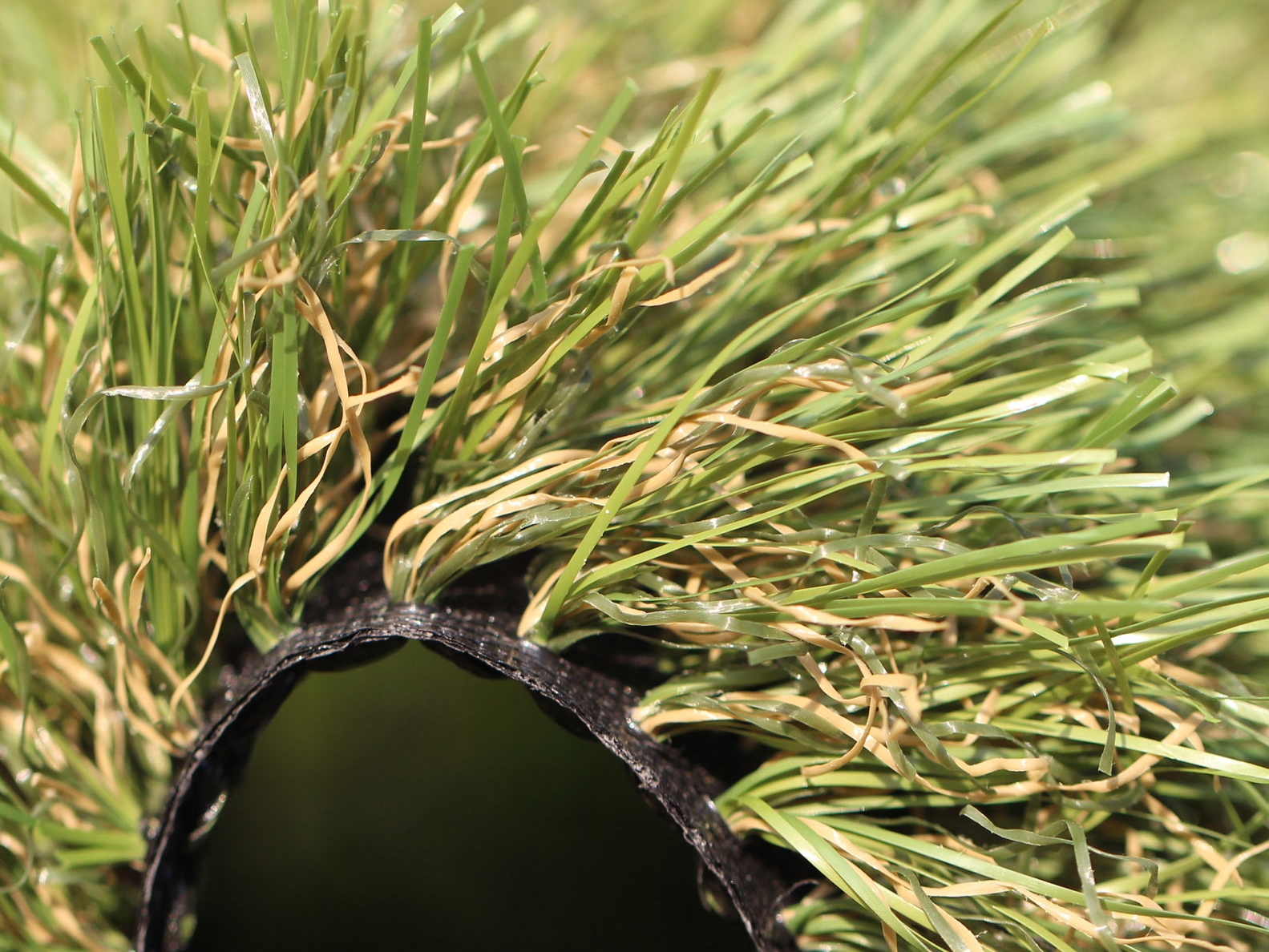Upgrade Your Outdoor Space with Arizona Artificial Turf for a Lush Green Look
Upgrade Your Outdoor Space with Arizona Artificial Turf for a Lush Green Look
Blog Article
Look Into the Environmental Perks of Opting for Artificial Turf Solutions
The fostering of artificial grass options presents a compelling chance to resolve pressing ecological challenges. By significantly reducing water use and minimizing the application of unsafe chemicals, these choices not only advertise sustainable landscape design but additionally shield neighborhood environments. Moreover, the lower carbon footprint related to decreased maintenance tasks adds to an extra sustainable technique to land administration. The ramifications of these benefits prolong beyond simple preservation efforts, raising questions concerning their long-lasting influence on habitat conservation and overall ecological equilibrium. Exploring these measurements reveals an intricate interaction worth thinking about.
Water Preservation Benefits
One of one of the most significant advantages of synthetic grass is its capacity to preserve water. Traditional lawn yards need significant watering, especially in areas susceptible to dry spell or water restrictions. On the other hand, synthetic grass does not need watering, substantially lowering the total demand for water sources. This function is particularly valuable in arid areas where water scarcity is a pushing issue.
By getting rid of the need for routine watering, man-made turf adds to sustainable landscape techniques and assists reduce the ecological influence of too much water consumption. The conservation of water expands to the decrease of drainage, which can lead to dirt disintegration and river air pollution.
In addition, the installment of man-made lawn allows districts and home owners to designate water sources a lot more successfully, concentrating on necessary uses such as drinking water and farming. The change towards synthetic grass not just advertises accountable water usage but also lines up with wider environmental objectives targeted at protecting natural sources.
As communities increasingly prioritize sustainability, the water preservation advantages of synthetic grass provide an engaging situation for its adoption in industrial and residential landscaping jobs.
Reduced Chemical Use
The shift to man-made lawn considerably lowers the dependence on chemical treatments frequently utilized in natural lawn upkeep. Standard lawn administration commonly entails the application of fertilizers, herbicides, and chemicals to promote development and control bugs. These chemicals can pose dangers to human health, regional wild animals, and the setting, adding to soil and water contamination.
In comparison, synthetic grass removes the need for these dangerous materials. When installed, it requires minimal upkeep, mostly including routine cleaning and irregular infill replenishment. This reduction in chemical use not only profits the prompt atmosphere yet also adds to wider ecological security. By decreasing the launch of artificial compounds right into the ecosystem, man-made turf advertises healthier dirt and water supply.
In addition, the lack of chemical overflow related to artificial grass setups aids protect neighborhood waterways from pollution, supporting marine life and keeping biodiversity. Phoenix turf companies. As neighborhoods increasingly prioritize lasting practices, going with man-made lawn offers a sensible service that straightens with environmental preservation goals. With this shift, residential or commercial property proprietors can enjoy rich environment-friendly spaces without endangering environmental health, leading the way for a much more lasting future
Reduced Carbon Impact

Additionally, the installation of synthetic grass can lead to significant water conservation. All-natural lawns need significant amounts of water for irrigation, which not only contributes to the carbon footprint related to water extraction and treatment yet also stress local water sources. In comparison, synthetic grass needs minimal maintenance, requiring no watering, consequently considerably decreasing water usage and its associated power prices.
Furthermore, the durability of artificial turf contributes to its this page lower carbon influence. With a lifespan of up to 15 years or more, the demand for constant substitutes is decreased, causing less waste and reduced power consumption in manufacturing and dealing with typical grass alternatives. Overall, fabricated lawn presents a sustainable choice for ecologically aware landscape design.
Environment Preservation
Environment preservation is an essential consideration in the debate over landscaping choices, particularly when contrasting synthetic grass to all-natural turf. Natural yard yards usually call for comprehensive upkeep, consisting of using chemicals, plant foods, and herbicides, which can detrimentally affect regional ecosystems. These chemicals can seep into the soil and waterways, hurting native flora and fauna and interrupting regional habitats.
Synthetic turf gets rid of the need for harmful chemicals, thus protecting neighboring wildlife and keeping the integrity of bordering communities. The installation of fabricated turf can lead to the conversion of former lawn locations into even more biodiverse landscapes, such as pollinator yards or native plant locations, which can Our site support neighborhood wildlife.
Inevitably, the change to synthetic grass not just conserves water and minimizes upkeep efforts but also cultivates a more unified partnership in between human tasks and the native environment, advertising environment preservation in the process.
Long-Term Sustainability
Long-term sustainability is a critical consider assessing the advantages of artificial turf over traditional grass lawns. Among the most significant benefits of synthetic turf is its toughness; it can last up to 15-20 years with very little maintenance, whereas natural lawn needs constant reseeding and replacement. This long life minimizes the demand for consistent resources, such as water, plant foods, and chemicals, which are crucial for preserving a healthy and balanced yard lawn.
Additionally, man-made turf contributes to a reduction in carbon emissions related to yard care devices. Conventional yards frequently require gas-powered mowers, trimmers, and blowers, all of which add to air pollution. Turf installation phoenix az. In comparison, man-made lawn gets rid of the need for such equipment, advertising a cleaner setting
Moreover, the manufacturing of synthetic grass significantly utilizes recycled products, boosting its sustainability account. As suppliers embrace eco-friendly methods, the environmental footprint of synthetic grass remains to diminish.

Verdict
The adoption of man-made turf solutions provides considerable ecological advantages, consisting of significant water conservation, lowered Turf installation phoenix az reliance on damaging chemicals, and a lower carbon impact. Artificial grass aids in preserving natural environments by lessening land disturbance and advertising long-lasting sustainability via the usage of long lasting products. Collectively, these variables emphasize the capacity of synthetic grass to add favorably to ecological wellness and offer a viable choice to typical landscape design practices in an increasingly resource-conscious globe.
In contrast, man-made turf does not require watering, substantially decreasing the overall need for water sources. By reducing the release of synthetic substances right into the community, fabricated grass promotes healthier dirt and water systems.
Furthermore, the installation of synthetic turf can result in substantial water conservation. In comparison, man-made turf needs minimal maintenance, needing no watering, therefore substantially lowering water usage and its connected energy prices.

Report this page